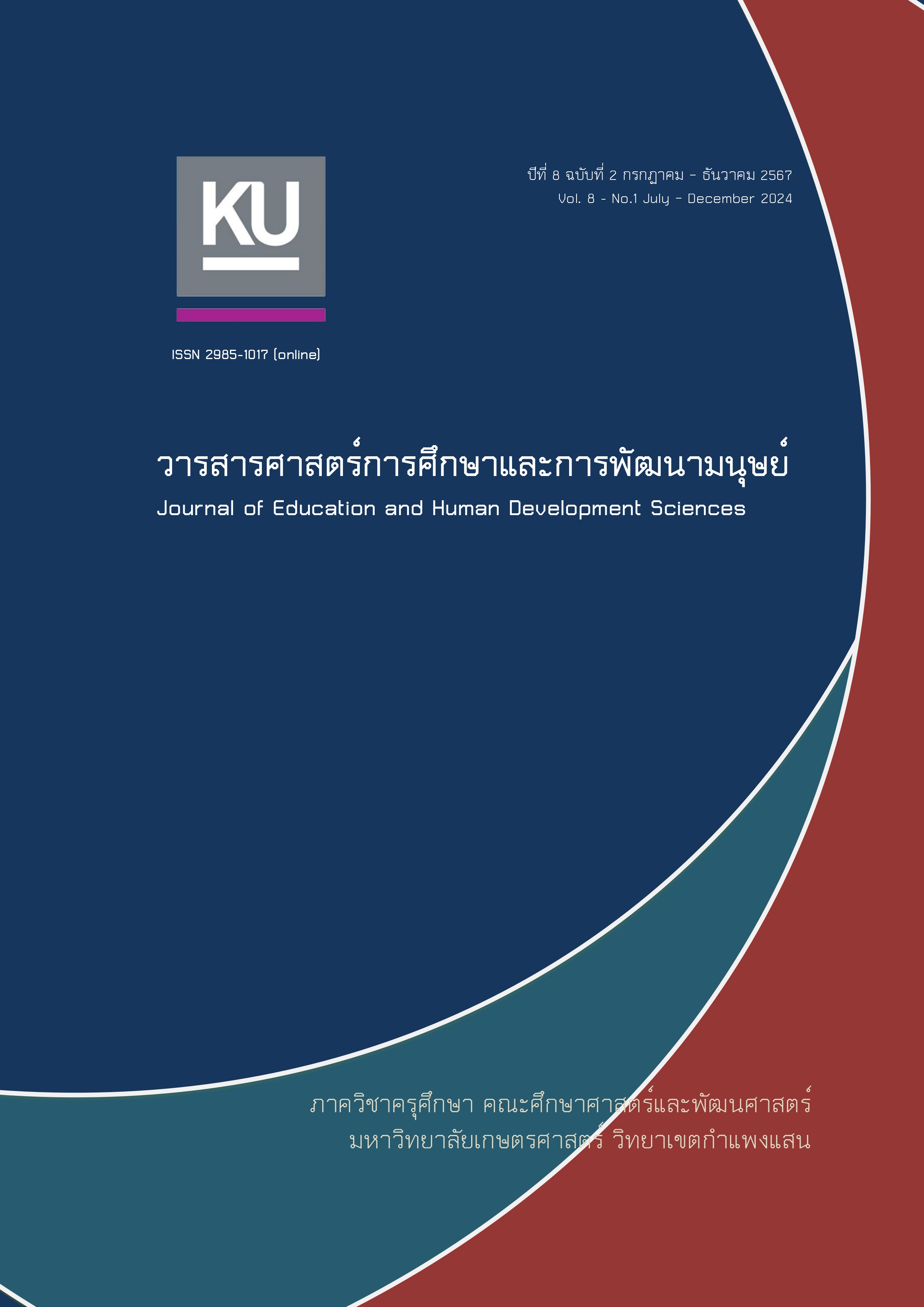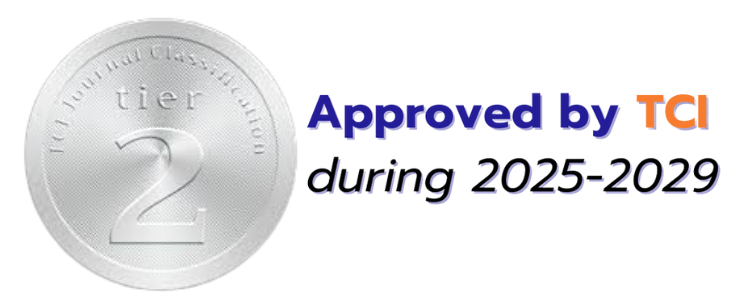The Priory Needs for Developing Teacher’s Digital Competency of Rattanakosinsomphotladkrabang School
Keywords:
Academic Management, Digital Competency, Priority Needs, Rattanakosinsomphotladkrabang SchoolAbstract
The objectives of this research article were to 1) study the current state and desired state of digital competency development for teachers at Rattanakosinsomphotladkrabang School and 2) Analyze the needs for developing digital competencies of teachers at Rattanakosinsomphotladkrabang School. The population was Rattanakosinsomphotladkrabang School. The informants consisted of 106 administrators and teachers from Rattanakosinsomphotladkrabang School. The research instrument was a questionnaire on the current and desired states, using a 5-level rating scale. The statistics used for data analysis were frequency distribution, percentage, mean, standard deviation, and modified priority needs index.
The research found that the teachers' digital competencies in all 6 aspects ( 1) Professional Engagement, 2) Digital Resources, 3) Teaching and Learning, 4) Assessment, 5) Empowering Learners, and 6) Facilitating Learners’ Digital Competencies) were at a high to highest level for both current and desired states, respectively. Overall, the ranking of priority needs indices for developing digital competencies of teachers at Rattanakosinsomphotladkrabang School from highest to lowest were ( Assessment, Digital Resources, Facilitating Learners’ Digital Competencies, Teaching and Learning, Professional Engagement, and Empowering Learners.
The research results indicated the need to promote teachers' digital competencies for self-development in teaching, work performance with efficiency, and benefits for students.
Downloads
References
BeartaiBRIEF. (2023). In, the higher you study! Even colder! Why don't new graduates have jobs? https://www.youtube.com/watch?v=XmGGEbnEysQ&t=60 [translated]
Bizview, T. (2022). Useless Class How to adapt to survive in the AI era. https://workpointtoday.com/useless_class/ [translated]
Caena, F., & Redecker, C. (2019). Aligning teacher competence frameworks to 21st century challenges: The case for the European Digital Competence Framework for Educators (Digcompedu). European journal of education, 54(3), 356-369.
Champathong, A. (2013). Digital Sphere, the new world of digital media. http://blog.nation.ac.th/?p=2493
Chunil, C. (2019). The ultimate application for evaluating learning outcomes. https://www.scimath.org/article-technology/item/10115-2019-04-19-03-47-12
Namphet, N. (2023). Teacher skills towards understanding for student learning. https://www.eef.or.th/article-191223/
Office of the Basic Education Commission. (1999). National Education Act 1999. https://www.bic.moe.go.th/images/stories/Porrorbor2542.pdf [translated]
Office of the Education Council. (2017). National Education Plan 2017-2036. https://www.lampang.go.th/public60/EducationPlan2.pdf
Pakotang, J. (2019). Leaders in the digital age: Communication strategies for success. Journal of the Professional Development Association Educational Administration of Thailand, 1(2), 35-46. https://so04.tci-thaijo.org/index.php/JAPDEAT/article/view/250831/170381
Panich, W. (2014). Ways to create learning for students in the 21st century. Walailak Journal of Learning Innovations, . Walailak Journal of Learning Innovations, 1(2), 3-14.
Phothong, W. (2018). Technology and lifelong learning for teachers. Naresuan University Community Development Research Journal, 11(2), 18-16.
Phuworawan, Y. (2021). A new way of learning. New way of life and digital intelligence. https://learningdq-dc.ku.ac.th/course/?c=3&l=3
Plookpanya. (2021). Measuring and evaluating results in learning management using technology as a base. Foundation for the Future of Education. https://www.trueplookpanya.com/education/content/87884/-teamet- [translated]
Rattanakosinsomphotladkrabang School. (2022). Self-evaluation report of educational institutions, academic year 2022. [translated]
Sartprasert, J., & Chindapol, W. (2023). Managing Online Learning Effectively in the Digital AgeEpidemic SituationCoronavirus Disease 2019 (Covid-19) Demonstration School. Journal of Legal Entity Management and Local Innovation, 9(5), 337-347.
Sirisak, K. (2016). Research on the teaching professional curriculum for Develop guidelines for promoting master's degree digital competencies [Master of Education, Chulalongkorn University].
Thongsawat, S., & Thawinkarn, D. (2023). Development model towards becoming an organization. Digital for schools expands opportunities Under the jurisdiction of the Educational Service Area Office Nakhon Ratchasima Primary Education, Area 3. Journal of Education, Prince of Songkla University, Pattani Campus, 34(1), 85-98.
Downloads
Published
Issue
Section
License
Copyright (c) 2024 Journal of Education and Human Development Sciences

This work is licensed under a Creative Commons Attribution-NonCommercial-NoDerivatives 4.0 International License.







